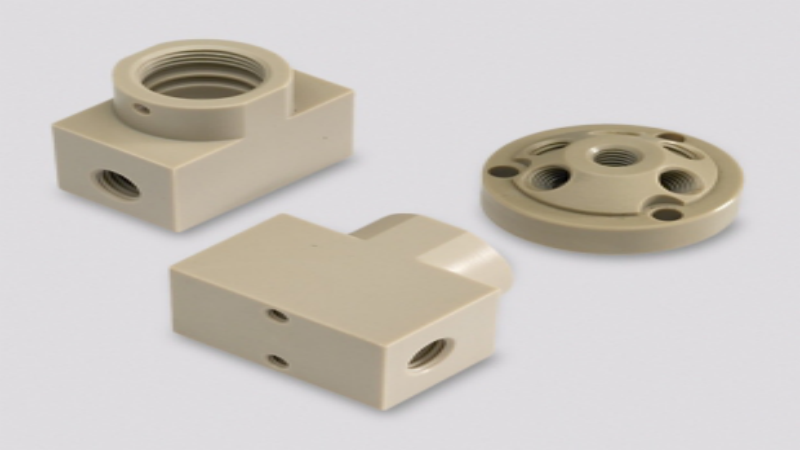A colorless organic polymer, PEEK (polyether ether ketone) is easily utilized for extremely close tolerance across a wide range of engineering applications. A popular choice among plastics because it demonstrates excellent high temperature and structural fatigue resistance, PEEK’s superior chemical resistance allows it to replace metal in applications subjected to harsh environments.
A summary of the many properties that make PEEK a versatile substrate in plastics manufacturing follows:
Advantageous Properties of PEEK
* High temperature resistance
* Fatigue resistance
* Excellent chemical resistance
* Enhanced abrasion and wear resistance
* Low coefficient of friction
* High impact strength
* Machinability
* High purity
* Combustion resistance
* Dimensional stability across a broad range of temperatures
Machining PEEK Basics
Machining PEEK is preferable to using it as an injection molding substrate in applications where:
* Tight tolerance is required. Parts created by injection actually shrink when removed from the mold, so the mold must be engineered to account for the part’s expansion and contraction due to temperature differences. Machining minimizes temperature changes and facilitates the substrate’s ability to hold tighter tolerance.
* The complexity of the part requires an expensive mold. Machining offers a more cost effective solution when the part to be produced is dimensionally complex.
* The production timeline is short. Designing, producing and testing molds is time-consuming, but this process is eliminated by machining PEEK instead of injecting it.
* Production volume is low. With machining, the need for custom tooling is eliminated, thereby reducing the cost of producing prototypes or small production runs.
PEEK is available in two basic grades – industrial and medical – and production shops typically receive the material as rods with diameters ranging from 6-150 mm. Both grades are machined similarly. However, when the PEEK is reinforced with glass or carbon fibers, specialized tools are required. Additionally, when parts for the medical and food industries are being produced, it is necessary to employ precautions to prevent surface contamination.
Before the machining process begins, PEEK must be stress-relieved through a process known as annealing. Uneven or rapid heating and cooling introduces stress into the machining substrate. Annealing decreases the likelihood that heat generated from drilling, shaving and cutting will cause surface cracks and other defects that could compromise the integrity of the final product. Some shops will anneal the work piece several times before final finishing in order to relieve stress induced by lengthy stretches of machining.
PEEK machining is a complex process, with many variables – and even more design and production possibilities. Visit Pepctplastics.com to learn about a recognized leader in high-precision machined plastics. The team at Connecticut Plastics offers a wide array of services, unparalleled expertise, and the excellence in customer care that you – and your next project – deserve.









